What is a Mutation?
A mutation is a permanent alteration in the DNA sequence of a gene. This can result from changes in the nucleotide sequence, the addition or deletion of entire genes, or the rearrangement of the genetic material within a chromosome.
Types of Mutations
There are several types of mutations, including:
- Point Mutations: These involve a change in a single nucleotide, such as substitution, insertion, or deletion.
- Chromosomal Mutations: These involve changes in the structure or number of whole chromosomes, such as deletions, duplications, inversions, or translocations.
- Gene Mutations: These involve changes in the sequence of a gene, leading to altered or nonfunctional proteins.
Causes of Mutations
Mutations can be caused by various factors, including:
- Spontaneous Mutations: These occur naturally during DNA replication, recombination, or repair.
- Environmental Factors: Exposure to radiation, chemicals, or certain viruses can increase the likelihood of mutations.
- Errors in DNA Replication: Mistakes made during the copying of DNA can lead to mutations.
Effects of Mutations
Mutations can have different effects on an organism, including:
- Neutral Mutations: These have no effect on the organism's phenotype or survival.
- Beneficial Mutations: These can confer a selective advantage, leading to adaptation and evolution.
- Deleterious Mutations: These can result in harmful effects, such as genetic disorders or decreased fitness.
Study Guide
To study mutations, consider the following:
- Learn about the different types of mutations and their impact on gene function.
- Understand the causes of mutations, including both internal and external factors.
- Explore the effects of mutations on organisms and the role of natural selection in shaping genetic variation.
- Review case studies of specific mutations and their implications for human health and evolution.
- Practice analyzing DNA sequences and identifying potential mutations using bioinformatics tools.
By understanding mutations, you can gain insight into the molecular basis of genetic diversity, disease, and evolutionary processes.
[Mutation] Related Worksheets and Study Guides:
.◂Science Worksheets and Study Guides Sixth Grade. Plant Processes
Study Guide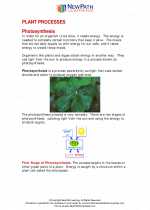 Plant Processes
Plant Processes  Activity Lesson
Activity Lesson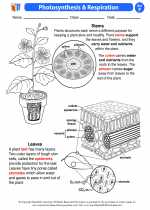 Photosynthesis & Respiration
Photosynthesis & Respiration  Worksheet/Answer key
Worksheet/Answer key Plant Processes
Plant Processes  Worksheet/Answer key
Worksheet/Answer key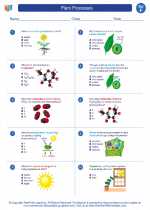 Plant Processes
Plant Processes  Worksheet/Answer key
Worksheet/Answer key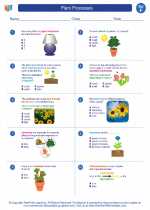 Plant Processes
Plant Processes  Worksheet/Answer key
Worksheet/Answer key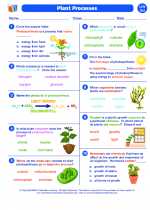 Plant Processes
Plant Processes  Vocabulary/Answer key
Vocabulary/Answer key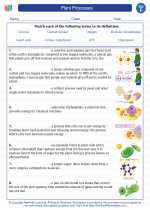 Plant Processes
Plant Processes  Vocabulary/Answer key
Vocabulary/Answer key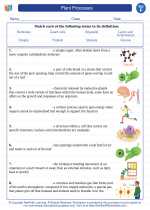 Plant Processes
Plant Processes 

 Activity Lesson
Activity Lesson
 Worksheet/Answer key
Worksheet/Answer key
 Worksheet/Answer key
Worksheet/Answer key
 Worksheet/Answer key
Worksheet/Answer key
 Worksheet/Answer key
Worksheet/Answer key
 Vocabulary/Answer key
Vocabulary/Answer key
 Vocabulary/Answer key
Vocabulary/Answer key

The resources above cover the following skills:
LIFE SCIENCE
From Molecules to Organisms: Structures and Processes
Students who demonstrate understanding can:
Construct a scientific explanation based on evidence for the role of photosynthesis in the cycling of matter and flow of energy into and out of organisms.